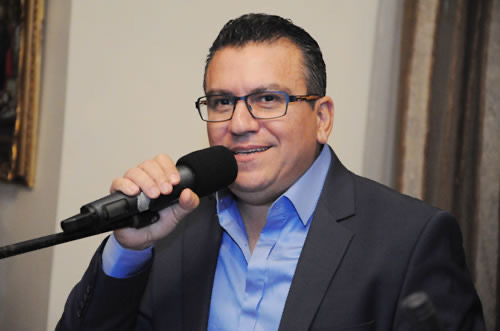
Maxime Karoutchi is the torchbearer of the Moroccan Jewish song and the last of the Jewish Pop singers who remained in Morocco and who still cling to the preservation of the “chgouri” artistic heritage.
He was born in Casablanca in 1965 into a family of distinguished artists. His grandfather was once the patron saint of musicians. As for his father, known as the Moroccan Karoutchi, he was one of the most important artists who left his mark on Moroccan Jewish popular song.
In addition to his occupation as a craftsman specializing in the manufacture of babouches, he directed a famous orchestra in Casablanca that performed at many weddings and ceremonies during the 1970s, both for Jews and Muslims. His children Maxime and Mike inherited from him the love of music.
Maxime Karoutchi studied mechanics, but he soon discovered his passion for singing and music, especially the organ which he loved. That is how he joined the Municipal Conservatory of Casablanca to study the basics of solfège. His first opportunity to play in front of the public came when one of the musicians in his father’s orchestra was absent. Maxime replaced him, at the request of his mother who managed to convince his father of his talent. The performance he showed at that time continues to this day.
The origins of the Maxime Karoutchi family, or Nassim Yahya, according to his birth certificate, go back to the first generation of Andalusian Jews, who, accompanied by their Muslim brothers, escaped the hell of the Crusader Inquisition and settled in Italy, hence their Italian-sounding surname. Later, they went to Morocco, to settle in Essaouira, Safi or El Jadida. Some of them chose the north of Morocco.
The Maxime Karoutchi family arrived in Casablanca at the beginning of the 50s, coming from Essaouira. They settled in the medina and more exactly in the alley of the English, where Maxime was born and lived a large part of his childhood. It is a poor neighborhood of which Maxime has always remained proud of, despite the fame to which he was able to gain access.




Be the first to comment